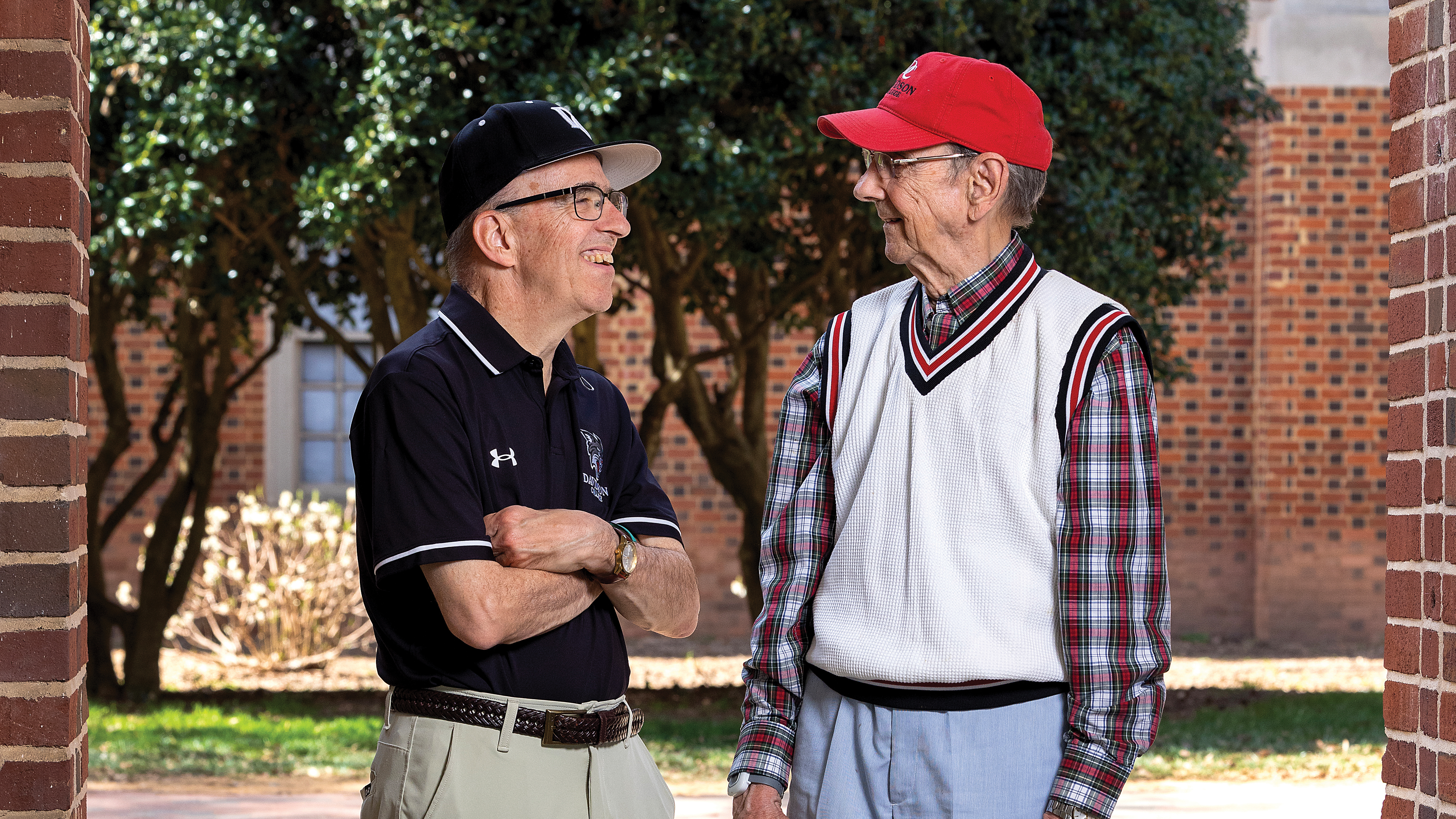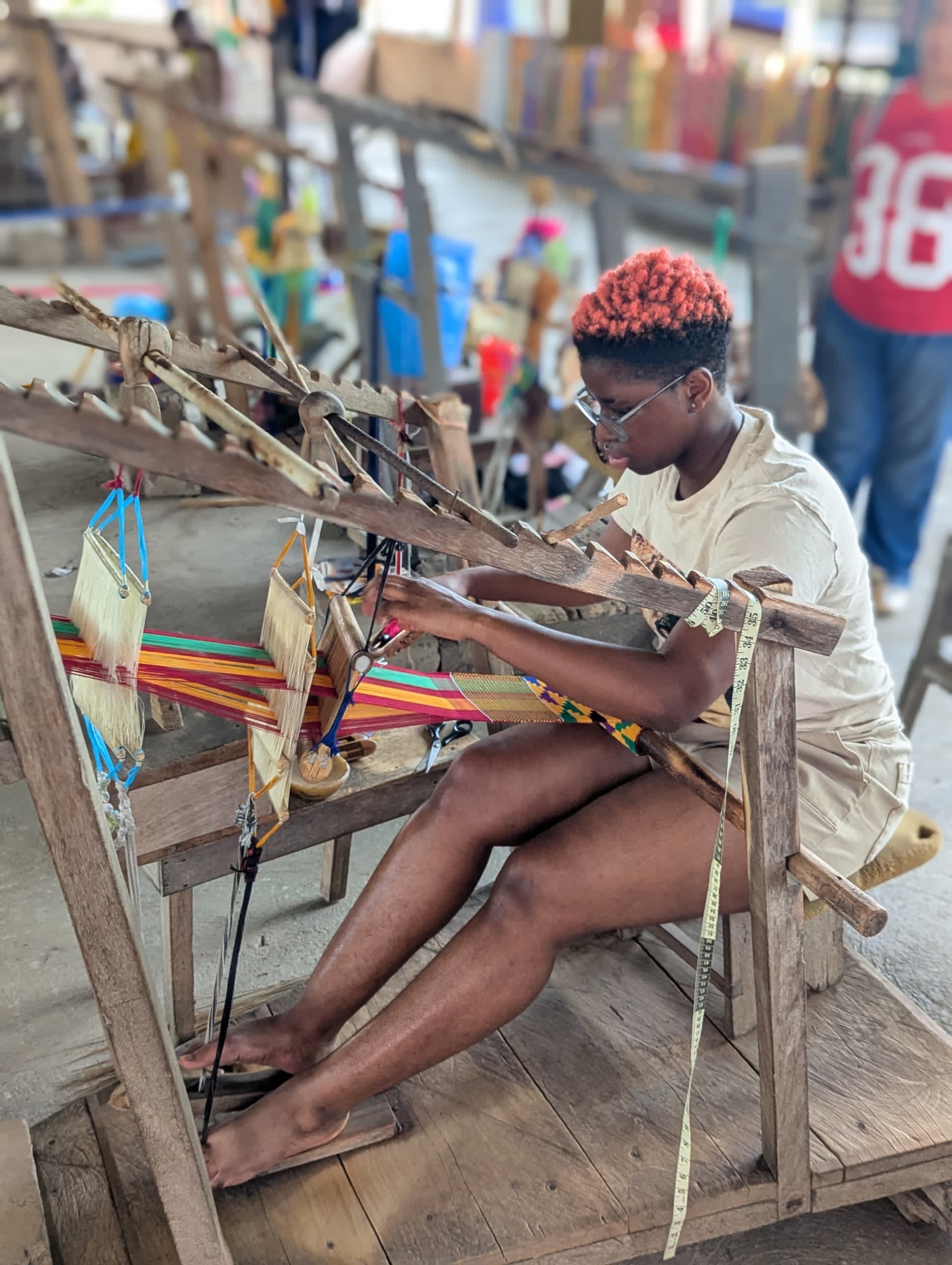A Tribute to Homer Bates Sutton '71
May 5, 2016
Homer B. Sutton '71 is retiring after 31 years in the classroom and various other campus roles. His presence on campus will be greatly missed.
In celebration of this milestone, Carole Kruger, Chair of the Department of French and Francophone Studies penned the following tribute.
As I look out at this sea of familiar faces, I find myself wondering how many of you joined the Davidson faculty in the pre- Homer Sutton era. I won’t ask for a show of hands; I will merely observe that those hands belong to colleagues—all male, I might add—who have been attending faculty meetings for well over three decades. If one takes into account Homer’s undergraduate years, our colleague’s relationship with Davidson is fast approaching the half-century mark. For close to forty years, then, Homer has faithfully served the college, both inside the classroom and out, occasionally in capacities that some younger colleagues may find surprising. Indeed, Homer Sutton has probably worn as many different hats on this campus as he owns bow ties. Today we pay tribute to a colleague and friend by recalling some of the varied and meaningful contributions he has made to the life of the alma mater he so dearly loves. Faced with a five-minute time limit, I am bound to fall short of doing justice to a professional lifetime of loyal and committed teaching, scholarship, and service. But here goes.
A proud native of Dalton, Ga., Homer B. Sutton first arrived on the Davidson campus in the summer of 1967, just a few weeks following the death of his father. He spent a year studying in France on the Davidson Junior Year Abroad program in Montpellier, where, according to a reputable eyewitness and local man of the cloth, he displayed some “pretty wild and crazy” behavior. Little else is known today about that formative period, although the experience surely had something to do with Homer returning to Europe the year following graduation to teach English as an assistant in a French lycée. It was during that year, on a camping trip to Corsica, that Homer met Catherine Slawy, his future wife and life partner. After spending a year in Lausanne, Switzerland, on a Rotary Graduate Fellowship, it was back to the States and off to the Midwest, where Homer received his Ph.D. in French from Indiana University in 1979. He taught French at Hanover College for a year, before deciding not to pursue a career in US Intelligence or the Foreign Service. He joined the Davidson faculty in the fall of 1981 as an assistant professor of French.
At the same time as he was developing a reputation among students as an enthusiastic, patient, and challenging classroom instructor, Homer was finding his voice as a committed advocate for international education. After a fruitful two-year stint as resident director of the Davidson program in Montpellier, Homer was tapped to serve as the college’s coordinator of Study Abroad, a position he held from 1983 to 1994, a period that saw unprecedented growth in the number of Davidson students who were coming to understand the value of an extended abroad experience as a
key element of a liberal arts education.
As if wearing the classroom French professor hat and the Study Abroad coordinator hat were not enough to fill Homer’s workload tracker, President John Kuykendall named him Interim Dean of Admissions for academic year 1991-92, observing that his long familiarity with the admissions process at Davidson made our colleague “a natural choice” for the position. While his tenure at Admissions was admittedly short, Homer’s to-do list was anything but. According to the college press release dated 1991, the Interim Dean’s stated goals included expanding the student applicant pool, broadening the geographical area of recruitment as a means of building diversity on campus, and “developing proposals for the college to handle the increasing cost of financial aid to students,” a topic that remains of great interest to him to this day.
The 1990s—sometimes referred to as the barbershop quartet years—also saw Homer continue to teach, collaborate on projects with students, write articles, and present talks on aspects of 20th century French society that would become the focus of popular special topics courses: presidential electoral politics, educational reform, and life in Vichy France under the German Occupation. Citing his “dedication to the profession of teaching, involvement in the entire college community” and “visible concern and compassion for others,” the students of the Class of 1996—many of whom had interviewed with the Interim Dean of Admission—presented Homer with the ODK Teaching Award.
Regarding Homer’s accomplishments and contributions in the new millennium, Dean Clark Ross recalls the exemplary job Homer did in his role as Interim Director of the Dean Rusk Program during academic year 2001-2002. As further proof of his deep commitment to matters international, Homer served ably for many years as Chair of the International Education Committee, and was instrumental in nurturing Davidson’s relationship with the University François-Rabelais in Tours, home to the Davidson in France program since 1995. He and Catherine continued to accompany groups of Davidson students to France,
most recently during academic year 2012-13.
As Homer prepares to attend his 45th Davidson class reunion, he can look back on a rich and gratifying career. And look forward to starting a new phase of his life that will involve regular trips to France, holidays spent spoiling his beautiful granddaughter Clara, and continued performances singing bass with the Charlotte Symphony Chorus. And where the only hat he’ll need to reach for in the morning is… his golf cap, before he heads off to hit the links and work on what one golfing buddy admiringly calls his “booming golf drives.”
Congratulations, Homer. Félicitations, et bonne continuation.
Please join me in congratulating Homer on a job well done and thanking him for his service to this place we all love.



